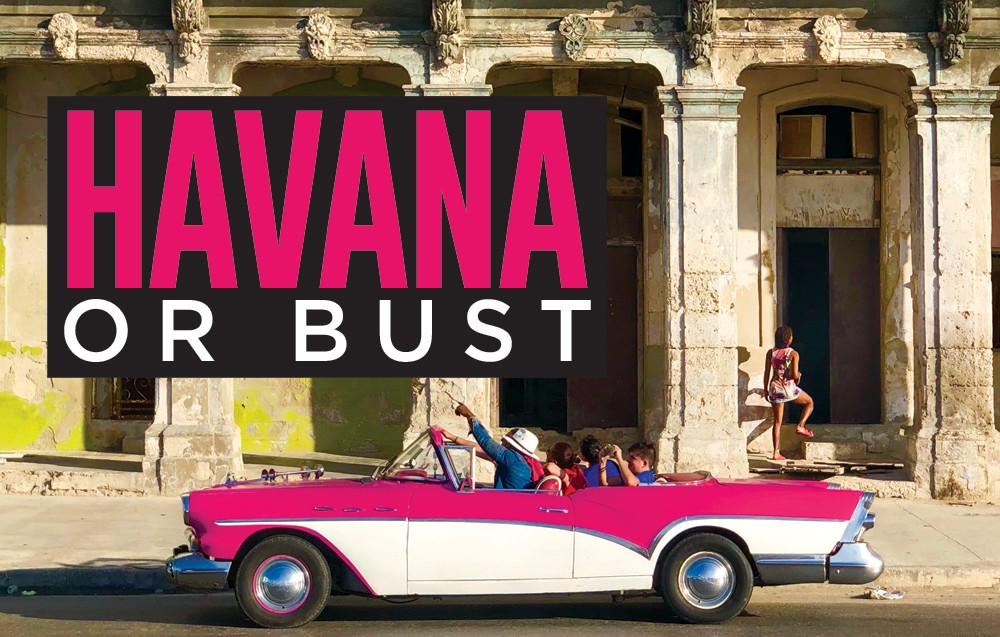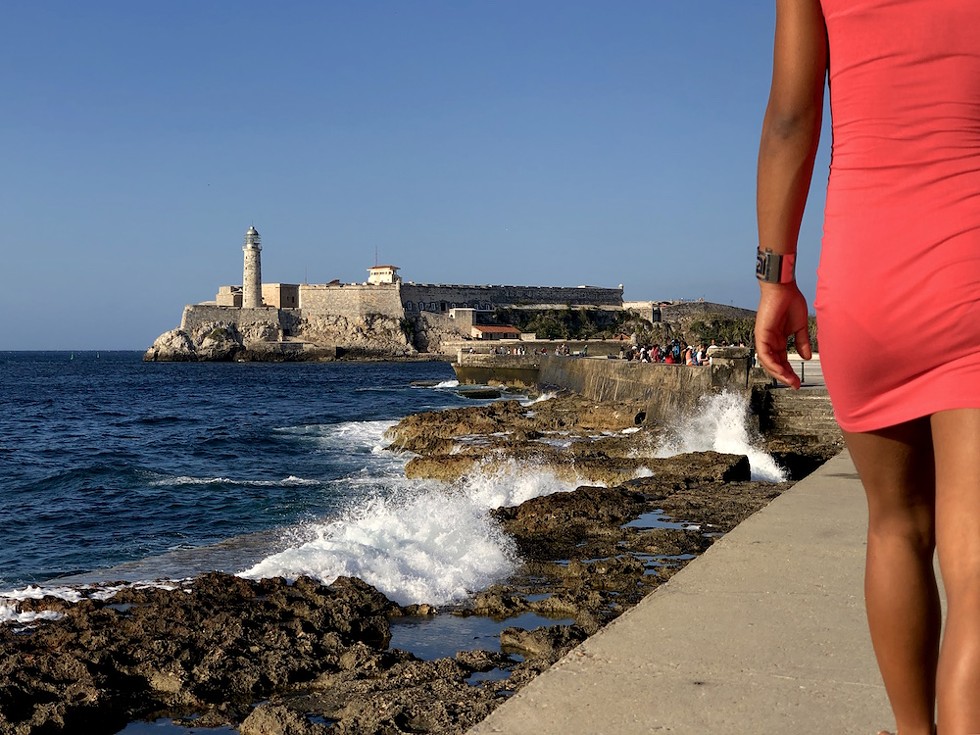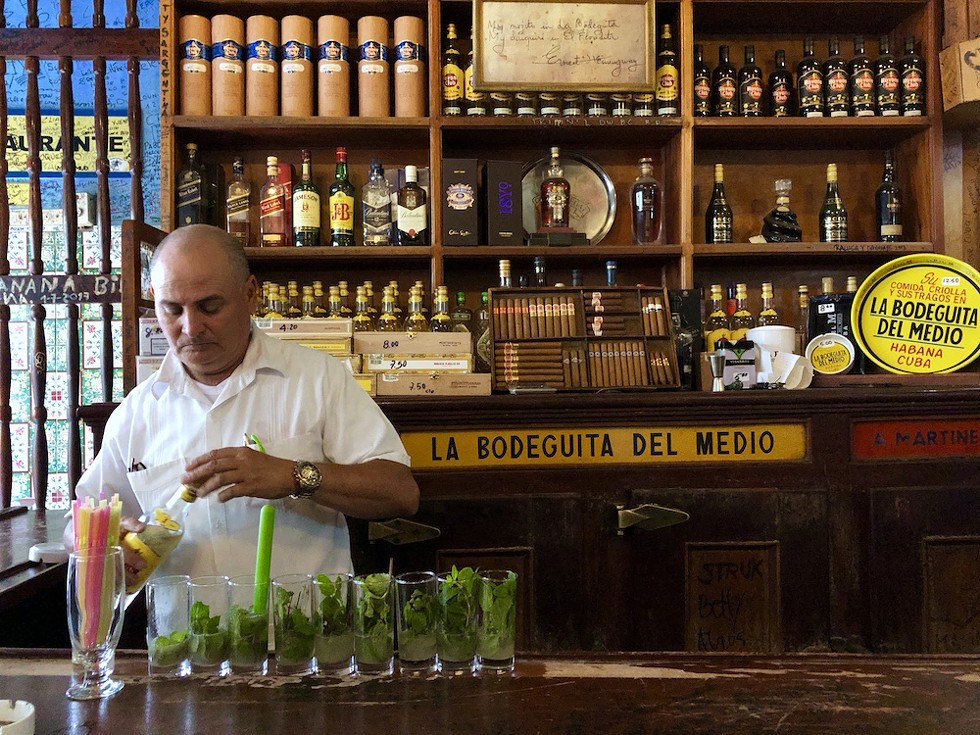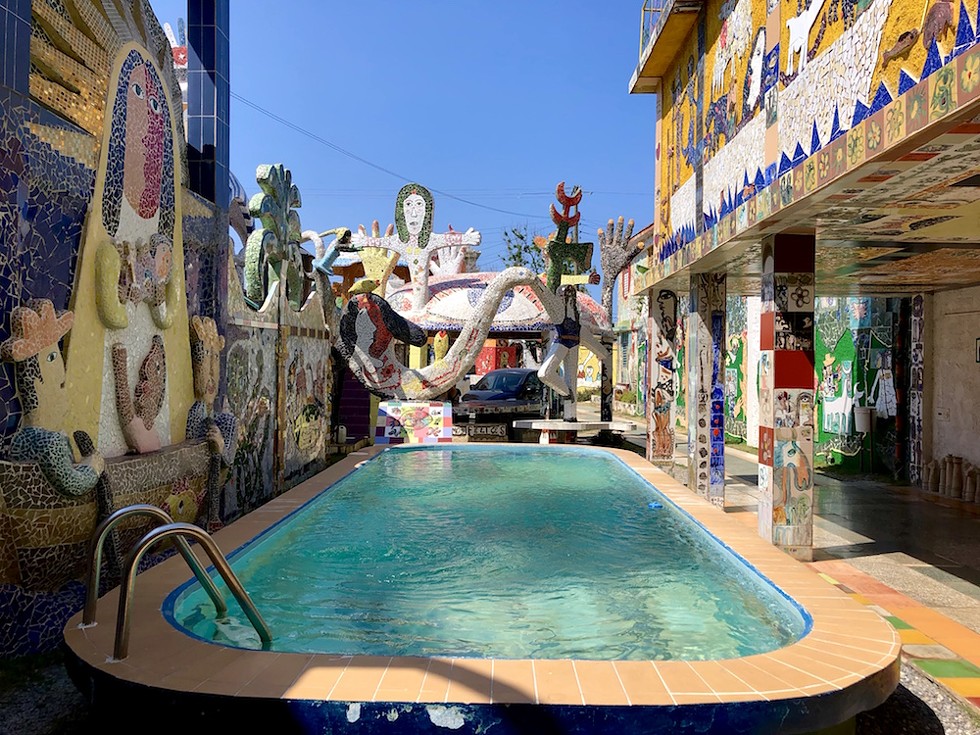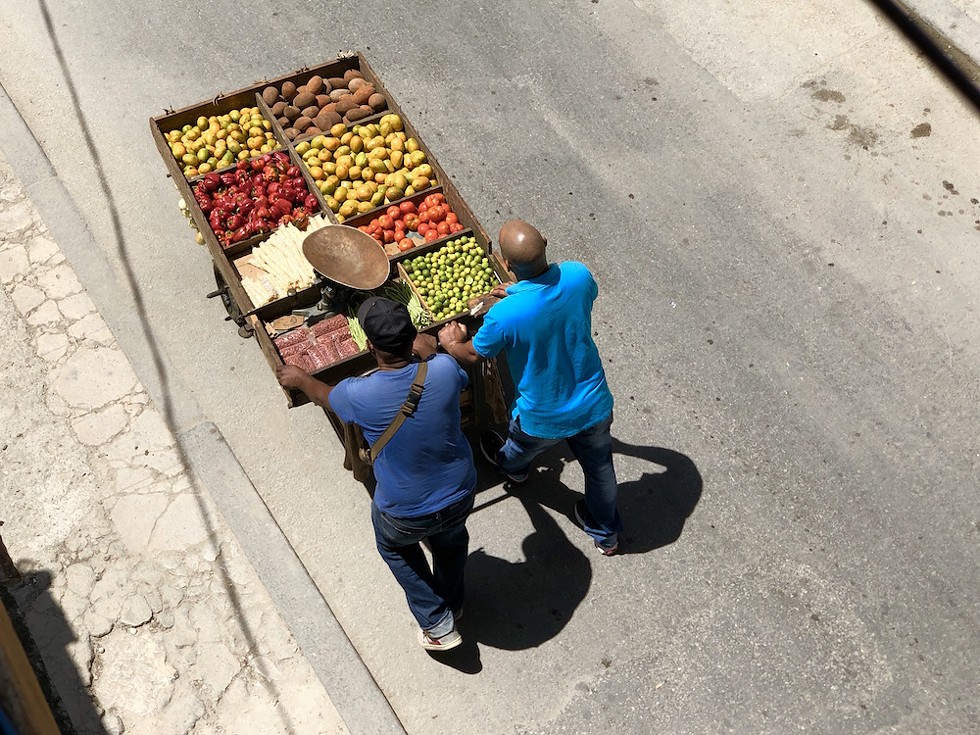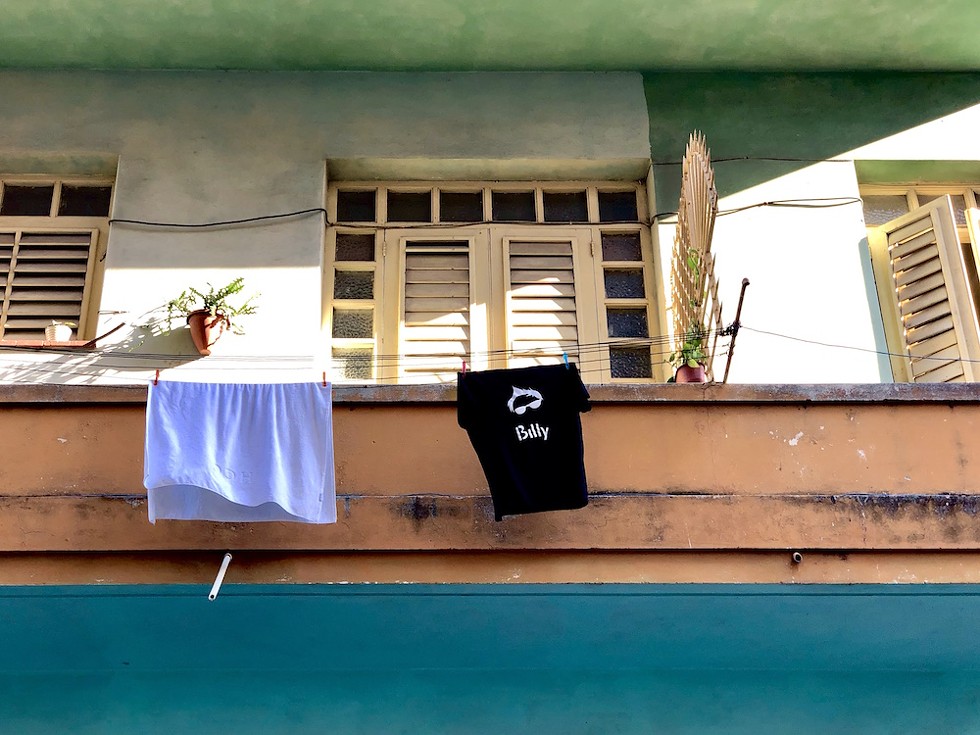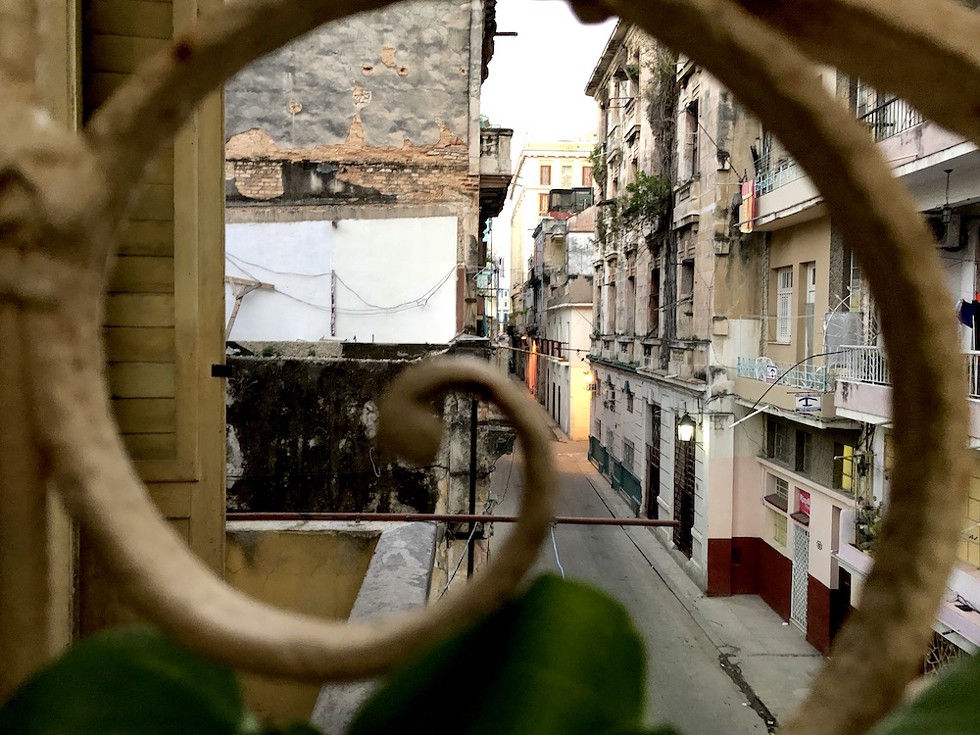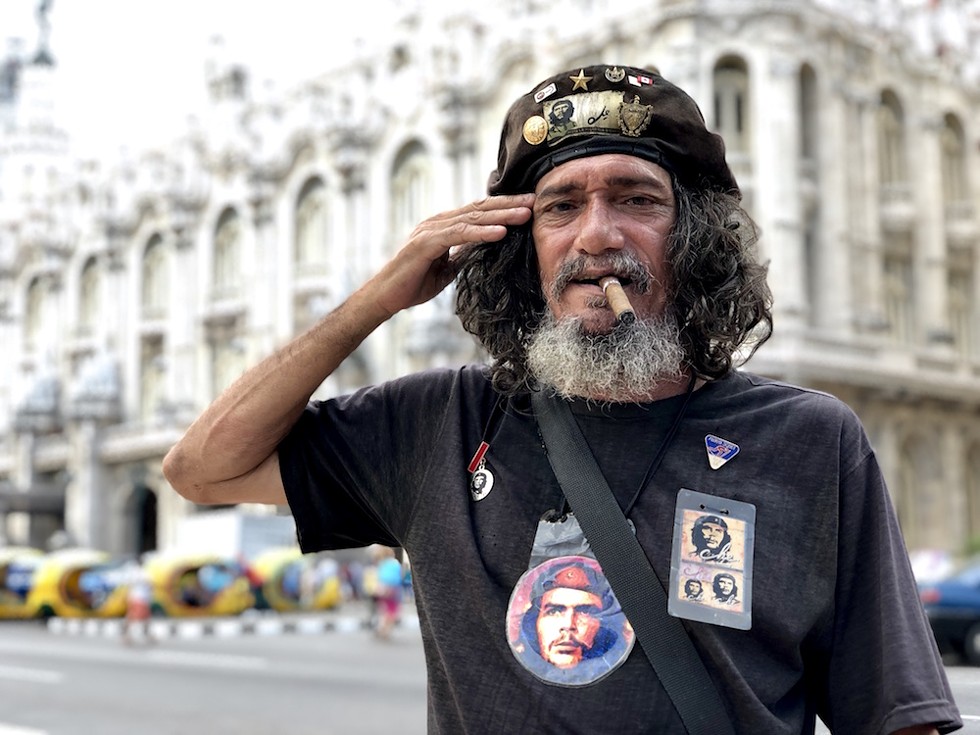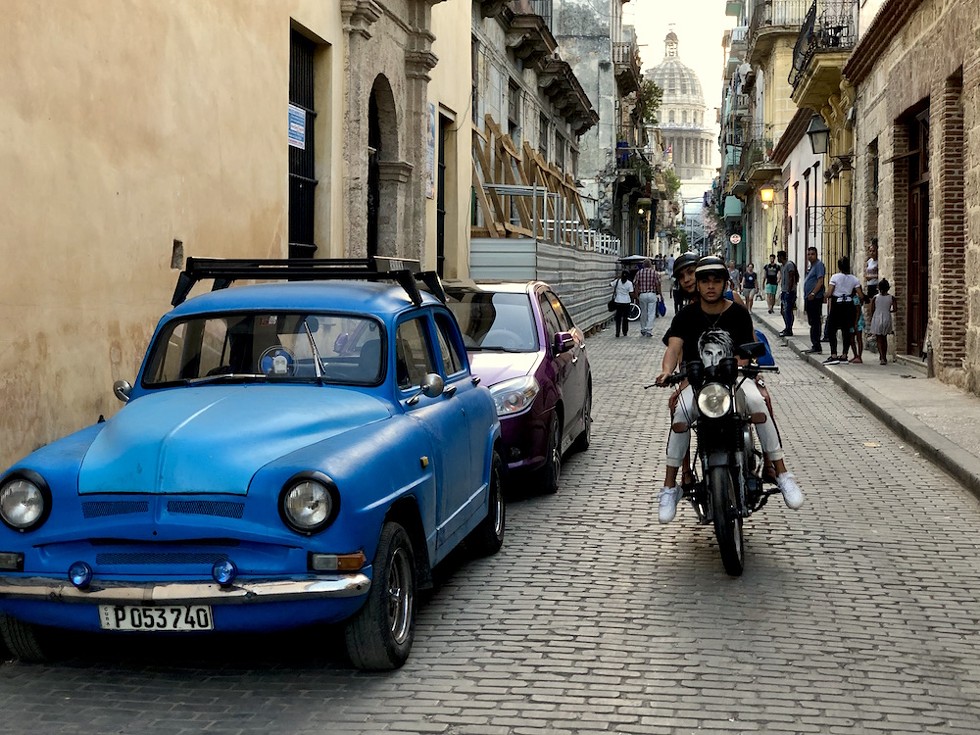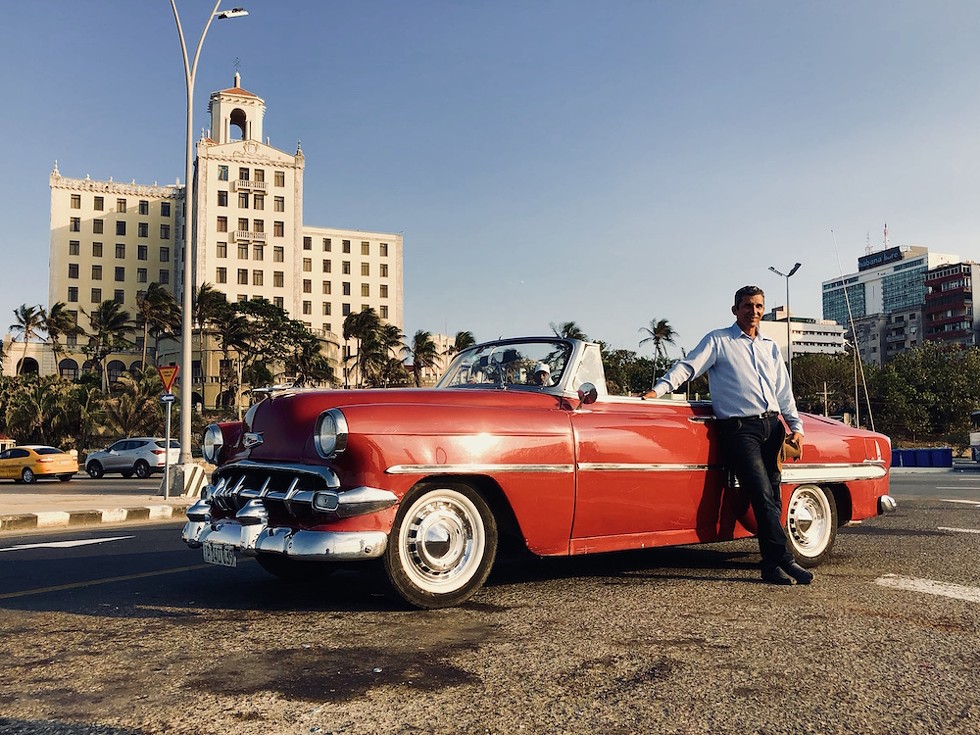For a while after President Barack Obama relaxed the restrictions on travel for U.S. citizens to visit Cuba, it seemed like everybody I knew was making the trip. The airfare on JetBlue, the first commercial airline to offer direct flights from Orlando to Havana, was dirt cheap and the flight is super short – about an hour in the air. Who wouldn't want to visit the island, long off-limits to the average American, that Cuban poet Nicolás Guillén famously described as "a green crocodile/with eyes of stone and water"?
But then Trump happened, and he quickly announced that he planned to reverse Obama's kinder, gentler approach to Cuba. While he didn't outright ban travel to Cuba, the Trump administration modified the rules just enough to make it unclear whether travel between Cuba and the U.S. was really worth the risk. Up to $250,000 in fines and 10 years in prison probably aren't likely to be the end result of a weekend visit to Havana, but they are the penalties on record under the United States' Trading With the Enemy Act.
But don't let those daunting threats and menacing travel warnings fool you – for now, travel to Cuba is still perfectly legal for U.S. citizens. You just have to do it right. We procrastinated on planning a trip to Cuba, taking it for granted that once Obama opened the door to cultural exchange between Cuban and American people, it would only swing wider as time went on. Clearly, we were wrong.
Trump's new travel rules went into effect in November 2017, and it was widely reported in many mainstream media outlets that they would make it difficult and expensive for Americans to travel to Cuba, that travel to Cuba would only be allowed with authorized tour guides and that the changes were intended to have a chilling effect on the sudden boom in interest among Americans wishing to visit the island.
That last part has definitely proven to be true – over the past six months, travel to Cuba has declined significantly, according to multiple sources. Earlier this month, USA Today reported that some Cuban travel companies are projecting a 25-30 percent drop in U.S. visitors to the nation because people are either confused or afraid to risk the trip. During our recent visit to Cuba, we were told by multiple Cuban citizens we met that they don't see as many Americans as they did in the previous two years. Philip Stewart, manager of corporate communications for JetBlue, did not comment specifically on whether the airline had experienced a drop in ticket sales between the U.S. and Cuba. He does say that JetBlue still offers about 50 flights per day between the two nations and "remains dedicated to fostering travel and cultural connections between the two countries."
"We continue to see strong demand among people visiting family in Cuba – travelers generally not impacted by the revised travel policies," he says.
While those revised policies do completely change the rules on one particular category of travel – so-called "people to people" travel, which under Obama permitted visits to Cuba by pretty much anybody, is now only permitted under the auspices of a U.S.-based organization – they only complicate some of the others. You can still go to Cuba. You just need to work a little harder to justify your trip and you need to stay within a few key guidelines. For instance, there's now a whole list of Cuban military-affiliated businesses that Americans are not allowed to patronize. Sadly, many of the large hotels in Havana are now off limits to U.S. citizens, including the famous Hotel Ambos Mundos, which operates a mini-museum in the room where Ernest Hemingway lived for seven years. Make sure you know that list before you go, and I'd suggest printing a copy to take with you when you travel. "Educational" travel is also more limited now and must be overseen by a U.S.-based organization.
We sought clarity on the rules from multiple sources before we booked tickets to Havana. I called JetBlue, which directed me to their website explaining that as long as I could stick to the rules, my travel would be legal. I also inquired with the United States Treasury, which did not respond to my email for guidance on the new restrictions. Fortunately, the Treasury's Office of Foreign Assets Control offers an online FAQ to help travelers navigate the process. I also reached out to my network on social media to learn about how others had fared during their trips since the rules had changed – and I was surprised to hear how many of my friends and acquaintances thought it was no longer easy, and perhaps no longer legal, to travel to Cuba. And that's a damn shame, because, as I discovered when I finally did book a trip, it's both.
If you visit the U.S. Department of State Travel Advisory website, you'll be hit with a dire warning about travel to high-risk destinations, and the page on Cuba bears a message about how there's reduced staffing at the U.S. Embassy in Havana due to the sonic attacks against American diplomats. However, Cuba is generally a pretty safe place for travelers to visit. When we went, we were told by everyone we talked to, including our host, that we would be safe walking the streets at any hour, that guns are extremely uncommon and that most people appreciate tourists because they bring a much-needed boost to the local economy. Indeed, we did walk the streets of Cuba until very late, and we were stopped frequently by people – most of whom wanted to ask us where we were from and whether they could interest us in a pedicab ride or a taxi.
If you've been eager to visit Cuba, but you weren't sure how to navigate the process under the new administration, here are some tips to help you figure it out. But first, a disclaimer: I'm not a travel agent or a lawyer, so this information should not serve as a substitute for your own research – this story is for informational and entertainment purposes only. Remember, the rules are always subject to change, especially since Cuba just elected a new president on April 19 (the first non-Castro to be in power in decades) and your comfort level with my interpretation of the rules may not match mine.
Don't call it a vacation.
While you are allowed go to Cuba, travel for tourism's sake is still not permitted for U.S. citizens. In order to be legal, your travel needs to fall into one of 12 categories authorized by the U.S. government. And, naturally, each category has its own set of extremely general guidelines for your trip. You can visit the U.S. Department of the Treasury's Office of Foreign Assets Control website, sift through the minutiae and sweat the difference between "humanitarian" and "people-to-people" activities. Or you can just skip ahead to the travel category that most savvy travelers have been using since Trump changed the rules: Support for the Cuban People.
Despite what some opportunistic travel companies and guides will tell you, this broad category allows U.S. citizens to travel to Cuba without any special paperwork and without buying an expensive package or going in a group. It allows for individual travel provided "each traveler engage(s) in a full-time schedule of activities that result in meaningful interaction with individuals in Cuba and that enhance contact with the Cuban people, support civil society in Cuba, or promote the Cuban people's independence from Cuban authorities."
What, exactly, does that mean? Lucky for you, it can mean a lot of things – since the rule is so broad, you can design your own itinerary of meaningful interaction that supports civil society and enhances\ contact with the Cuban people. While you could hire a guide or go with an authorized tour group, you can also make your own itinerary using Airbnb and a variety of Facebook groups dedicated to Cuban travel to help you craft an itinerary and find enough "meaningful" activity to fill out your days. We booked a number of activities via Airbnb's newish "experiences" feature, which have allowed Cuban economists, classic car owners, restaurateurs, professors and artists to market themselves to an international audience. Say what you will about Airbnb and the sharing economy, but it has created a whole new category of entrepreneurship in a country where government is the primary employer and salaries are notoriously low – approximately $15-$30 U.S. per month.
Just embrace Airbnb.
I know, I know. The sharing economy has its downsides, but in Cuba, it has created opportunities that are literally changing lives. We spent one of our days in Havana taking a tour of the city in a Chevy Bel Air convertible owned by a guy who had spent almost his entire career working in a factory for the government. His daughters, in tune with the opportunities Airbnb was bringing to people with the ability to get on the web, convinced him to start offering driving tours in his family's beautifully well-preserved classic car. Today, he spends his days driving tourists around Havana's Vedado, Miramar and Buena Vista neighborhoods, showing them spots they aren't likely to see on a typical tour – and pulling in more than the average monthly salary for a Cuban worker per rider every single time he does a tour. "I was happy before, and I wasn't looking to change my life," he told us during our drive, "but I'm very happy that I did this."
Since U.S. travelers aren't permitted to stay in many of Cuba's national hotels, Airbnb is also a good bet for booking a stay at one of the many, many, many casa particulares (private guest houses or bed and breakfasts) that operate on the island. Accommodations range from opportunities to stay in a private home with your hosts to private apartments where you can do your own thing. No matter which you choose, make sure to read the reviews before you book – many hosts offer convenient amenities for an additional fee, like breakfast or help arranging transportation to/from various destinations. Our host dedicated an entire afternoon to us, showing us around, talking to us about life in Cuba and answering questions about everything from crime to the economy. His introduction to Cuba helped set the stage for our visit.
Don't get sold.
Before you go to Cuba, it's only natural to do your research, but don't get sold by anyone who tries to tell you that you "can't" go unless you buy a spendy package from an authorized guide. Sure, you can do that, if you want to, but it's not required. We created our own four-day itinerary of Support for the Cuban People, which included activities like a visit to a local animal rescue, where we spent a day learning how the organization is working to spay and neuter street dogs and feral cats in Havana; a morning with an organization that teaches people new skills so they can develop economic independence; and an afternoon meeting artists working in a cooperative gallery.
We also had an opportunity to learn a little more about religion in Cuba because we happened to be there on Easter, a Catholic holiday. In 1959, after the Cuban Revolution, Cuba was officially declared an atheist country. The archbishop and many Catholic priests were deported, private schools were nationalized and Christmas was removed from the official holiday list. That changed in 1992, when Cuba declared itself secular and Catholics were once again permitted to join the Communist Party. I was curious to see how Easter would be celebrated, and we stopped to visit two churches set up in living rooms open to the street, as well as a mass in La Catedral de la Virgen María de la Concepción Immaculate de La Habana.
Interestingly, several of the people we met were perplexed when we asked them about the Easter holiday – a 30-year-gap in religious expression will do that to a culture, I guess.
Spanish language skills are not required, but they sure do help.
Though you can get by on English alone, you will certainly encounter people who don't speak English at all. It would be a shame not to be able to converse with them, so it's worth your time to review some basics. No need to buy Rosetta Stone – get your library card and take an online course using Mango or Rocket Languages.
Your credit cards won't work.
Because of the embargo against Cuba, your credit cards and bank cards will not work. At all. Bring enough cash to cover your trip, and you can exchange it at the José Martí International Airport when you arrive. We brought approximately $100 per person per day to cover our expenses, which ended up being far more than we needed. The exchange rate for the U.S. dollar was 1:1 in Cuban Convertible Pesos (more commonly known as CUC), but there is a 10 percent tax on exchanging American money. To avoid that tax, you can first convert your money to another currency in the United States, then exchange for CUC. We saved about $50 in taxes by converting to Euros before we left.
If you fly JetBlue, get your visa and health insurance at the ticket counter.
When you buy your tickets online, you'll need to declare which category you're traveling under. Then, when you arrive at the airport, you'll need to visit the ticket counter to purchase your visa (an additional $50 per person). No matter which category you declare, you'll receive a tourist visa, and you'll also need to fill out some paperwork for health insurance, which is included in your ticket price and is required by the Cuban government.
Document your trip.
Chances are, if you're following the rules and abiding by the law, your trip to Cuba will be uneventful and you won't be hassled about it by anyone. We sailed through customs on our way in and out, and nobody asked us any questions except for what we wanted to declare (one bottle of rum, one Cuban cigar). However, travelers are required to keep records of their transactions for five years, in case the government later decides to audit your trip. Since many of our transactions took place in living room bars and storefronts, which don't offer much in the way of receipts or documentation, I took photos of our activities, kept business cards from some of the paladares (family-owned restaurants) we frequented and kept a simple journal of each day's activities. Just in case.
No Wi-Fi, no problem.
Access to a lot of basic amenities you've grown accustomed to in the States can be limited in Cuba – rule of thumb is that if you absolutely need to have it when you're traveling, you should bring it with you. That includes medications, cosmetics and toiletries, which can be hard to find. Access to Wi-Fi is also extremely limited. If you must have it, you'll need to buy a Wi-Fi card, which generally gets you about an hour of time on the internet, then visit a public Wi-Fi hotspot to log in. However, my advice is: Just don't bother. There are too few opportunities in this modern world to put your phone away. Take advantage of this one and immerse yourself in another world while you still can.
Meaningful interactions
Artecorte Community Project
One of the best experiences we had during our visit to Havana was one of the most unlikely. We had a block of about two hours we needed to fill in order to meet the requirement of a "full time" schedule of activities, so two nights before we left for Havana, I booked a tour of a community project called Artecorte.
Founded in 1999, this nonprofit organization is a cultural project that offers unemployed adults an opportunity to train to become barbers or hairdressers. The founder, a barber named Gilberto "Papito" Valladares, operates a salon/barbershop that also functions as a school and museum of barbershop culture in Havana. Full of Cuban art dedicated to hairdressing, antique barber chairs and vintage hairdressing equipment, the museum is also a salon where Papito does color, cuts and styling.
But he and his team also run a series of fantastic free programs for kids and adults alike. With the cooperation of the city of Havana, he has developed a public-private partnership that allows Artecorte to run a hairdressing school and a bartending school, as well as operate a number of free programs for community members, including painting classes for children, a carpentry program for adults, badminton and futsal programs for kids, and workshops and activities at senior centers. The nonprofit organization receives no government funds for its work and it exists to improve living conditions for people in the community, to promote solidarity among entrepreneurs and to support similar development in other communities.
According to Camilo Condis, the general manager of Artecorte, the program has proven that "self-sustainability at a local level is possible." He says that Artecorte is also working on a new program to promote the use of bicycles in the city of Havana by offering free road-safety courses and a bicycle mechanic's program. For more information on that initiative, you can visit cuba8.org.
You can book a tour of Artecorte as an "experience" through Airbnb, and you can learn more about the organization by visiting artecorte.org.
The Aniplant Project
When you visit Havana, it won't be long before you notice the dogs and cats roaming the streets. Some are owned dogs that live a carefree life, scavenging, napping in doorways and going home when it suits them. Others, clearly, don't have a home base to return to. Aniplant is an independent nonprofit organization that exists to help these animals by offering education, spay/neuter, medical care and a modest shelter where dogs are housed while recovering from surgery or awaiting adoption. Cuban law puts restrictions on which organizations can function in a variety of fields, and Aniplant is the only animal-welfare organization permitted to operate in Havana. The organization, which is run by one powerhouse of a woman named Nora García Perez, exists on donations, volunteer support and the help of dedicated veterinarians who volunteer their time and resources to assist.
Aniplant is not listed on Airbnb – we learned about the organization through word of mouth, and I emailed to ask if we could visit and bring donations. With the help of our very generous veterinarian's office, Animal Medical Clinic of Orlando, we gathered as many sutures, sterile gauze, latex gloves, heartworm medications and vitamin supplements as we could into our bags and left it all behind with Aniplant. If you love animals and plan to visit Havana, I recommend that you look this organization up and ask how you can help. Their website is theaniplantproject.org.
Cruise Around West Havana
If you want to learn more about art, culture and the landscape of Havana, I cannot recommend this Airbnb tour ("Cruise around the West Havana") highly enough. Josué will take you on a trip through Vedado, Miramar and Buena Vista, stopping at culturally significant spots along the way, bring you to visit his favorite coffee shop, and talk to you about what it's like to work and live in Cuba. One of the high points of his tour is a stop at Fusterlandia, the absolutely breathtaking village that is almost entirely adorned with the mosaic art of José Rodríguez Fuster, a Cuban artist who specializes in ceramics and painting. I could describe it to you, but there are plenty of photos that accompany this story that do a better job showing than my telling could do justice. But go to Airbnb, visit the experiences tab and look up Josué and his tour. You won't be sorry. – ES

